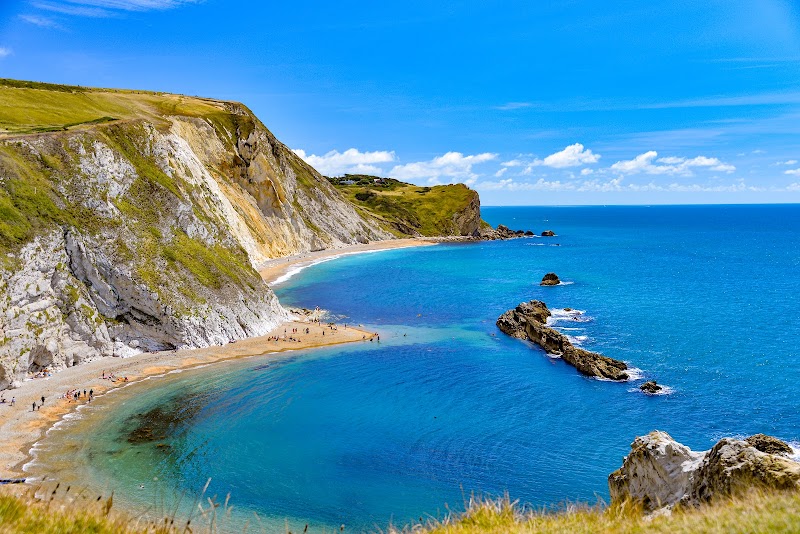
Marlborough Folk Festival: A Vibrant Celebration of Heritage in Wiltshire
Experience the Marlborough Folk Festival in Wiltshire — a lively gathering where music, dance, and craft blend into a vibrant cultural celebration. Perfectly paced for festival lovers and curious travelers alike, this event offers rich heritage wrapped in spirited fun. Discover how to plan your visit and immerse yourself in England's folk heartbeat.
Book Accommodations Early
Marlborough fills quickly during the festival week; securing a stay in advance ensures convenience and saves travel time between events.
Wear Comfortable Footwear
Prepare for walking on cobbled streets and grassy venues. Sturdy, broken-in shoes keep you steady through long festival days.
Stay Hydrated Throughout the Day
June can bring warm weather; carry a refillable water bottle to stay refreshed and alert for music and dance marathons.
Plan Your Transport from Swindon
Swindon offers the nearest major transport hub. Research bus and taxi options to avoid last-minute delays.
Marlborough Folk Festival: A Vibrant Celebration of Heritage in Wiltshire
Each June, Marlborough in Wiltshire pulses with energy as the Marlborough Folk Festival takes center stage. This annual event transforms the historic market town into a playground of sound and story, inviting visitors from every corner to experience the living tradition of English folk music, dance, and crafts. Streets and venues come alive with fiddles that sing and feet that tap, where the past engages with the present in a spirited exchange.
The festival is practical in its design — spread over several days, it offers a charming mix of concerts, dance workshops, relaxed pub sessions, and community ceilidhs. Venues range from open-air stages in College Fields to intimate corners of local pubs. For those planning to attend, booking tickets early is critical; the most popular shows fill fast, and accommodations in Marlborough book solid during festival week.
Navigating the festival is straightforward. Marlborough itself is compact, making it easy to walk between venues. Wear comfortable shoes: cobbled streets and grassy performance areas invite sturdy footwear. Staying hydrated is vital, especially in the often warm June weather, as the festival can stretch from midday into the late evening.
Beyond music and dance, the festival celebrates local artisans and traditional crafts, with stalls offering handmade goods that reflect the region’s cultural roots. Engage with craftspeople and learn about historic practices that the festival fiercely preserves.
The surrounding Wiltshire countryside waits just beyond Marlborough’s edges, giving a chance for a reflective stroll between events. Traditional English landscapes of rolling hills and ancient woodlands seem to pulse in rhythm with the festival’s beats.
Planning your trip: consider traveling via Swindon, the nearest city with extensive rail connections, which sits about 12 miles from Marlborough. From there, buses or taxis deliver you to this bustling heart of folk festivities.
This festival offers more than entertainment: it challenges you to engage with a culture unapologetically wild and genuine. It’s a space where music dares you to listen deeply, where dance demands your attention, and where history stirs, restless and ongoing.
Whether you’re a folk music devotee or a curious traveler, Marlborough Folk Festival is a clear, lively invitation to be part of a community and a tradition that keeps English folk fiercely alive.
Nearby Trips
All Adventures
Boat Charters
Water Activities
Adventures near Marlborough, Wiltshire, England
Discover the unique and memorable adventures that make Marlborough, Wiltshire, England special.
Frequently Asked Questions
What types of music and dance are featured at the Marlborough Folk Festival?
The festival showcases a broad spectrum of English folk traditions including fiddle, accordion, concertina, and traditional dance forms like ceilidh and morris dancing. Performances range from solo artists to large community groups.
Are there family-friendly activities at the festival?
Yes, the festival offers workshops and performances suitable for all ages. Family ceilidhs and craft stalls encourage interactive participation that welcomes children and adults alike.
How accessible are the festival venues?
Most venues are within comfortable walking distance in Marlborough’s town center, including some equipped for wheelchair access. It's advisable to contact event organizers ahead for specific accessibility information.
Is camping available near the festival?
There are no official campsites in Marlborough city center, but several campgrounds and caravan sites are located a short drive away. Booking in advance is recommended during the festival.
What local wildlife might I see around Marlborough during the festival?
The surrounding Wiltshire countryside hosts buzzards soaring overhead, hedgehogs scuttling through hedgerows, and an array of songbirds filling the air, adding a natural soundtrack to your festival experience.
Are there opportunities to learn about traditional crafts at the festival?
Absolutely. The festival prominently features workshops and artisan stalls where visitors can engage hands-on with historic crafts such as wood carving, weaving, and traditional instrument making.
Recommended Gear
Comfortable Walking Shoes
Robust and comfortable shoes help navigate cobbled streets and grassy spaces throughout festival venues.
Reusable Water Bottle
Stay hydrated during long festival sessions and outdoor performances.
Light Waterproof Jacket
Preparedness for sudden showers keeps you dry and comfortable while moving between event locations.
Small Daypack
Carry essentials like water, sunblock, and a festival map with ease.
Local Insights
Hidden Gems
- "College Fields Park – enjoy open-air performances with views of the town spires."
- "Kennet and Avon Canal towpaths – peaceful walking routes just a short stroll from festival hubs."
Wildlife
- "Buzzards circling above"
- "Kingfishers near the River Kennet"
- "Hedgehogs in suburban gardens"
History
"Marlborough has a rich history as a market town dating back to the 12th century, with streets lined by Tudor and Georgian architecture providing a tangible connection to England’s cultural past that frames the festival’s heritage focus."
